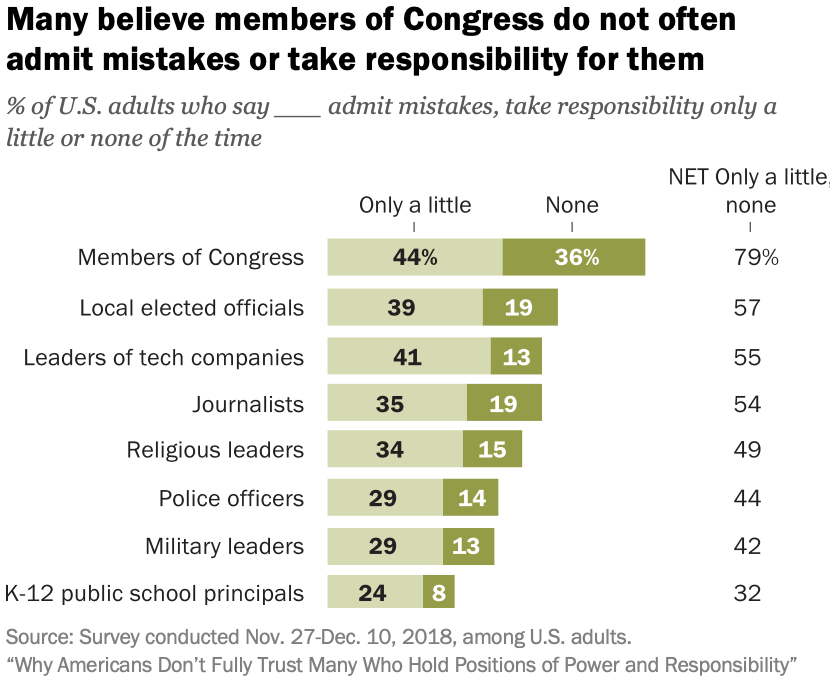
Contrary to proclamations about "fake news," more Americans believe the government, tech industry
leaders and even religious leaders act unethically most or some of the time more than journalists do. That's the latest finding from Pew Research Center's ongoing tracking of Americans' sentiment
about a variety of civics matters.
The study did not ask Americans about the ethics of the
executive or judicial branches of government, but members of Congress ranked as the least ethical players with a (net most/some of the time) response of 81%, followed by tech leaders (77%) and
religious leaders (61%).
advertisement
advertisement
Journalists tied with local elected officials (66%), while police officers (61%), public school principals (52%) and military leaders (50%) fared the best.
The
study also finds that most Americans feel these institutions of power often act unethically, because there are no "serious consequences" for their actions and that they rarely take responsibility for
them.
